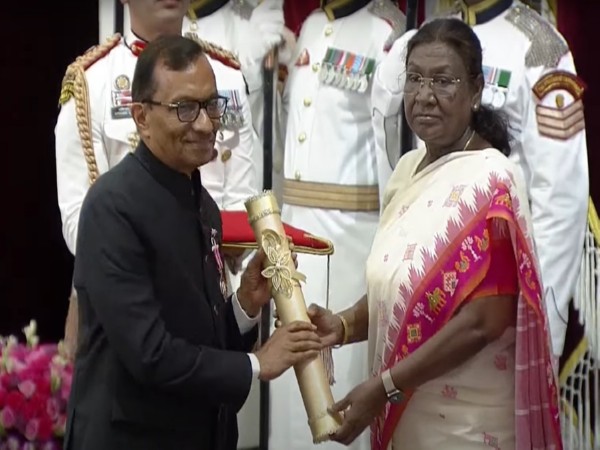Banking sector will lead the march to Viksit Bharat 2047: Secretary, DFS, Ministry of Finance
Sep 05, 2024

Mumbai (Maharashtra) [India], September 5 : M Nagaraju, Secretary, Department of Financial Services, Ministry of Finance, said on Thursday, "All of us are aware that India's robust banking system is getting ready to meet the needs of Viksit Bharat."
Delivering the keynote at 'FIBAC 2024' organised jointly by FICCI, and IBA on the theme 'Banking for Viksit Bharat', Nagaraju added, "Viksit Bharat 2047 is the government's ambitious vision to transform India to a developed country by 2047."
He pointed out that realising this vision demands dedication along with belief in the potential and talent of the Indian people. The union budget supported this vision by laying emphasis on mahila, yuva and annadaata.
Nagaraju noted that banks continue to be the major source of funding for the Indian economy. Every sector has an important role to play to achieve a GDP of USD 30 trillion by 2047. He further stated that banks help in promoting inclusive growth by reaching out to the underserved, empowering MSMEs, and facilitating initiatives in key areas such as healthcare. The government, on its part, has introduced various schemes, such as the PMJDY, to foster inclusion of all segments so that everyone can contribute to the growth of the country, noted the secretary.
Nagaraju observed that the difference between the financial sector and the fintech industry is gradually evaporating. He advised banks to leverage the potential of fintechs to reach the last mile. "India stack is a great story for all of us," he added, calling upon banks to build on that. But with the great emphasis on technology, banks also need to be cautious of cyber threats. He advised banks to strengthen their systems to mitigate operational risks.
Nagaraju further highlighted that post economic liberalisation in 1991, India built a tremendous brick-and-mortar infrastructure. Since that time, the country has seen tremendous change. We bridged the divide by going digital. Digital infrastructure has enabled everyone to be connected. Even so, he felt, a large section of the population still belongs to the middle- and low-income bracket. "Aspirations are huge, because everyone is connected. The banking community needs to take that into account. The 2047 goals are vast, but banking is the base on which everything will be built," he emphasized.
The Secretary stated that it was necessary for banks to be careful, yet agile in building robust credit systems so that a strong base is created. All sectors would need adequate capital, and infrastructure would need to be enhanced. "A lot of infrastructure of the past is aging and needs to be replaced," he observed. A key area of focus would be the MSME sector.
India has about 40 million registered MSMEs, but only 40 per cent of them are in the formal financial system. "Imagine the impact it will have if we step up to 80 per cent," he added.
Nagaraju also suggested that efforts should be made to educate the youth in entrepreneurship at an early stage. Many start-ups find themselves unable to sustain the start-up ecosystem. "We need to educate them at the college stage. Banks need to encourage the younger generation to dream and do something big in their lives," he stated.
Highlighting the importance of the SME sector as large providers of employment, he underlined that it is therefore important to ensure that they are empowered.
Nagaraju called for more initiatives in green financing, and for all sectors to be conscious of climate change when building portfolios. He hoped that banks would continue to maintain their support.
Proposing a vote of thanks, Sunil Mehta, Chief Executive, IBA, acknowledged the suggestions given by Nagaraju. He appreciated his ideas, particularly his direction for green financing. "IBA has created various forums to create awareness and has developed a road map to reduce carbon emissions. We will take your guidance very seriously," he assured.




















